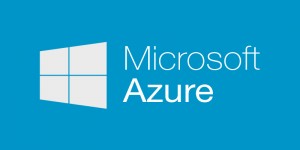 Microsoft continues to enhance its Azure platform with several new features that are already available. The company has added Azure virtual machines using the new processors Intel Xeon, Azure Key Vault security service and SQL Server Connector.
Microsoft continues to enhance its Azure platform with several new features that are already available. The company has added Azure virtual machines using the new processors Intel Xeon, Azure Key Vault security service and SQL Server Connector.
Microsoft introduces Azure G-Series virtual machines (VMs) for public cloud applications. Azure G-Series VMs consist of memory, processing power and local solid state drive (SSD) storage. Azure G-Series VMs consist of 32 vCPUs that make use of the E5 v3 Intel Xeon processors. They also have 448 GB of memory and 6.59 TB local SSD space. This allows organizations to run heavy workloads and applications, such as relational database servers (MySQL and SQL Server) and NoSQL databases (Cassandra, Cloudera and MongoDB) plus big data solutions.
By the time the G-Series are available in the US, the company plans to expand the service, with prices, of course, from $0.67 to $9.65 an hour depending on the selected configuration.
The second Azure development is the availability of the Azure Marketplace Ubuntu Server with a built-in application virtualization Docker image, Docker on Ubuntu Server by Canonical and Microsoft Open Tech. Users can now easily select a Docker gallery item and provision an Azure Ubuntu VM with the latest Docker engine immediately ready to use. Previously, the process required users to install the Docker extension to a running Linux VM.
The next development is the introduction of Microsoft Azure Key Vault, a service designed to manage passwords and cryptographic keys used to encrypt data and access applications. Security, which was one of the main barriers to the uptake of cloud, is back on everyone’s mind. Azure Key Vault, which competes with AWS Key Management, also can be used to support Azure Rights Management Service, which enables organizations to access protections specified file level.
Azure Key Vault helps users safeguard and control keys and secrets using HSMs in the cloud, with ease and at cloud-scale. Key Vault can be configured in minutes, without the need to deploy, wait for or manage an HSM and has a single programming model across HSM-protected and software-protected keys. Microsoft described the Azure Key Vault service as a proposal for bring-your-own-key (BYOK), and ensures that you can speed up access to an application and that the service can be configured in minutes.
The preview of Azure Key Vault also includes support for SQL Server Connector, which allows the SQL Server database running on virtual machines protected by Azure Key Vault. It also includes support for SecureVM Link Cloud solution. Initially integrated with Microsoft Azure in July 2014, SecureVM allowed users to manage Azure virtual machines encryption based on Windows and Linux. Now, with the integration of Azure Key Vault, SecureVM allows customers to have control over their own encryption keys.
In October last year, Microsoft added support of real-time analytics for Apache Hadoop in Azure HDInsight, Apache Storm and new machine learning capabilities in the Azure Marketplace. Microsoft’s approach is to make it easier for users to work with data of any type and size — using the tools, languages and frameworks they want — in a trusted cloud environment.